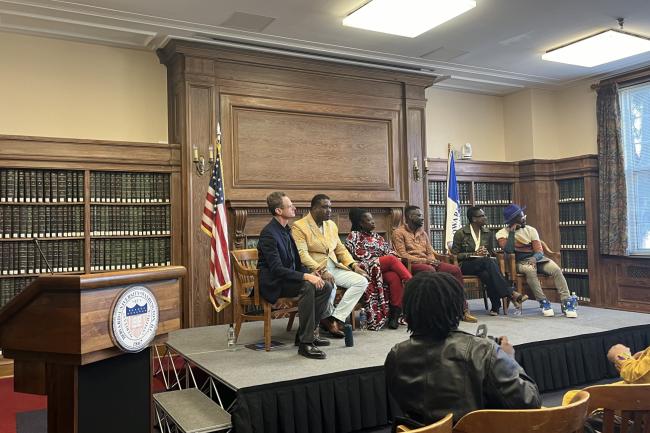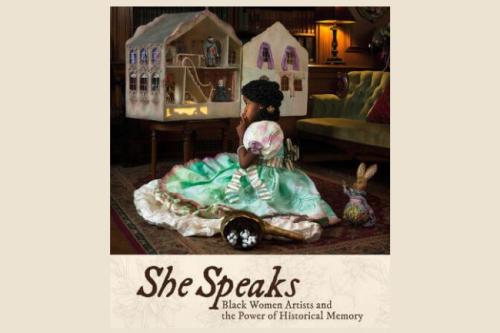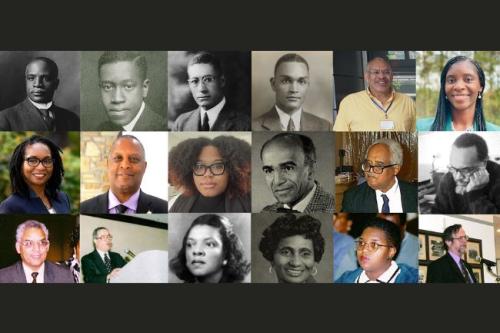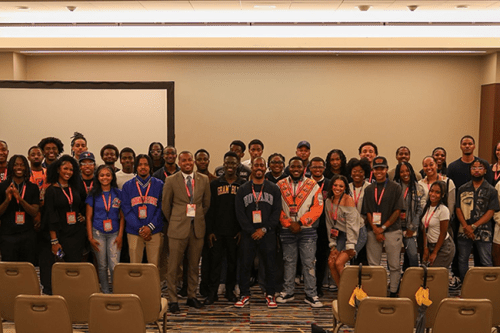WASHINGTON, D.C. - On Wednesday, March 20, the Howard University Moorland-Spingarn Research Center (MSRC) hosted “Archiving Revolution: The Spectacle of Power in Late 20th Century Ghana,” a panel conversation inspired by the “Revolution and Image-making in Postcolonial Ghana (1979-1985)” exhibit in the Howard University Museum featuring photography from Gerald Annan-Forson, whose work documents major political moments in the country.
The MSRC has been instrumental in broadening the conversation of Annan’s work about the political history in Ghana, serving as a testament to the important role archiving plays in preserving history, and how art contributes to political conversations globally. The archive includes over 200,000 negatives and was first displayed in 2022 at the Sharjah Art Foundation in the United Arab Emirates.
A renowned photographer, Annan-Forson spoke candidly of his work and purpose in documenting the history of postcolonial Accra, Ghana. Throughout his 30-plus years of capturing images of the country and its former heads of state during revolutions and coup d’état's, Annan-Forson witnessed violence and faced hardships. “At one point you ask yourself is being a photographer worth it?” said Annan-Forson. “Following dignitaries was my idea of making the country look good.”
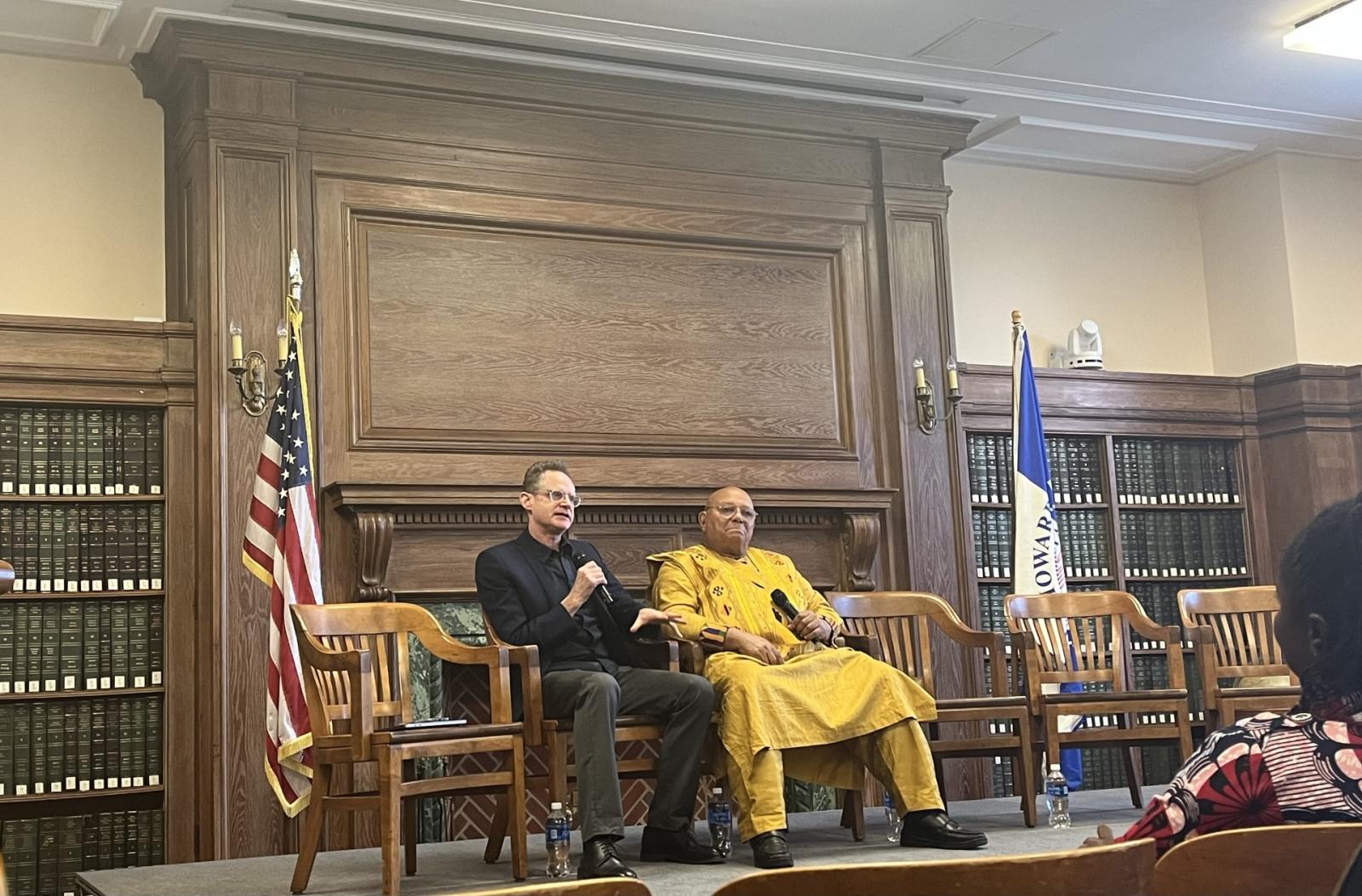
Born in 1947, Annan-Forson began his career as a freelance photographer during the mid 1970s with a focus on Accra, Ghana. The images are roughly chronicled from the late 1970s through the early 1980s and share intimate details of a country’s evolution in a post-colonial era. He photographed subjects ranging from political ceremonies, trials, coups, funerals, and revolution in action, to everyday people from all walks of life.
Other panelists included Ghanian journalist Nana Ama Agyemang Asante, UC San Diego professor of history Bright Gyamfi, Ph.D., cultural anthropologist and Georgetown University professor Kwame Otu, Ph.D., Howard University professor of history Scot Brown, Ph.D., and archivist at the University of Ghana Institute of African Studies Judith Opoku-Boateng.
“Revolution is a question. How do people use the term revolution and what does it mean to radically rethink in an expansive sense, to challenge the form and not the content of how we use language,” said Jesse Shipley, Ph.D., an anthropologist who moderated the panel. “What does it mean to record stories about the past and to think about the past, present, and future in a dynamic relationship, and how can the practice of archiving become radical and revolutionary.”
“The imagery that shows the nuance of [revolutions] is very important because it’s easy for those of us in the diaspora to have a one-dimensional idea about these safe havens that we look for when we think about the global picture,” said Brown. “While I haven't abandoned the idea that such a place structured in a way that is in the interest of African people can exist and could already exist – maybe we don't know about it – it’s important for us to encounter something closer to the truth to clarify our imagination.”
The major theme throughout the event was the idea that society is in a pivotal and historical moment. This is a moment of radical possibility, of violence, and of a generation that is trying to rethink the future, explained Shipley. It is increasingly important that we understand how the past reflects and inspires the possibilities of today.
The exhibit showcases numerous photographs by Annan-Forson alongside the equipment used to capture the historical context depicted. It is currently accessible for viewing at the Howard University Museum until the Fall semester.
###
About Howard University
Founded in 1867, Howard University is a private, research university comprising 14 schools and colleges. Students pursue more than 140 programs of study leading to undergraduate, graduate and professional degrees. The University operates with a commitment to Excellence in Truth and Service and has produced three Schwarzman Scholars, four Marshall Scholars, four Rhodes Scholars, 12 Truman Scholars, 25 Pickering Fellows and more than 165 Fulbright recipients. Howard also produces more on-campus African American Ph.D. recipients than any other university in the United States. For more information on Howard University, visit www.howard.edu.


